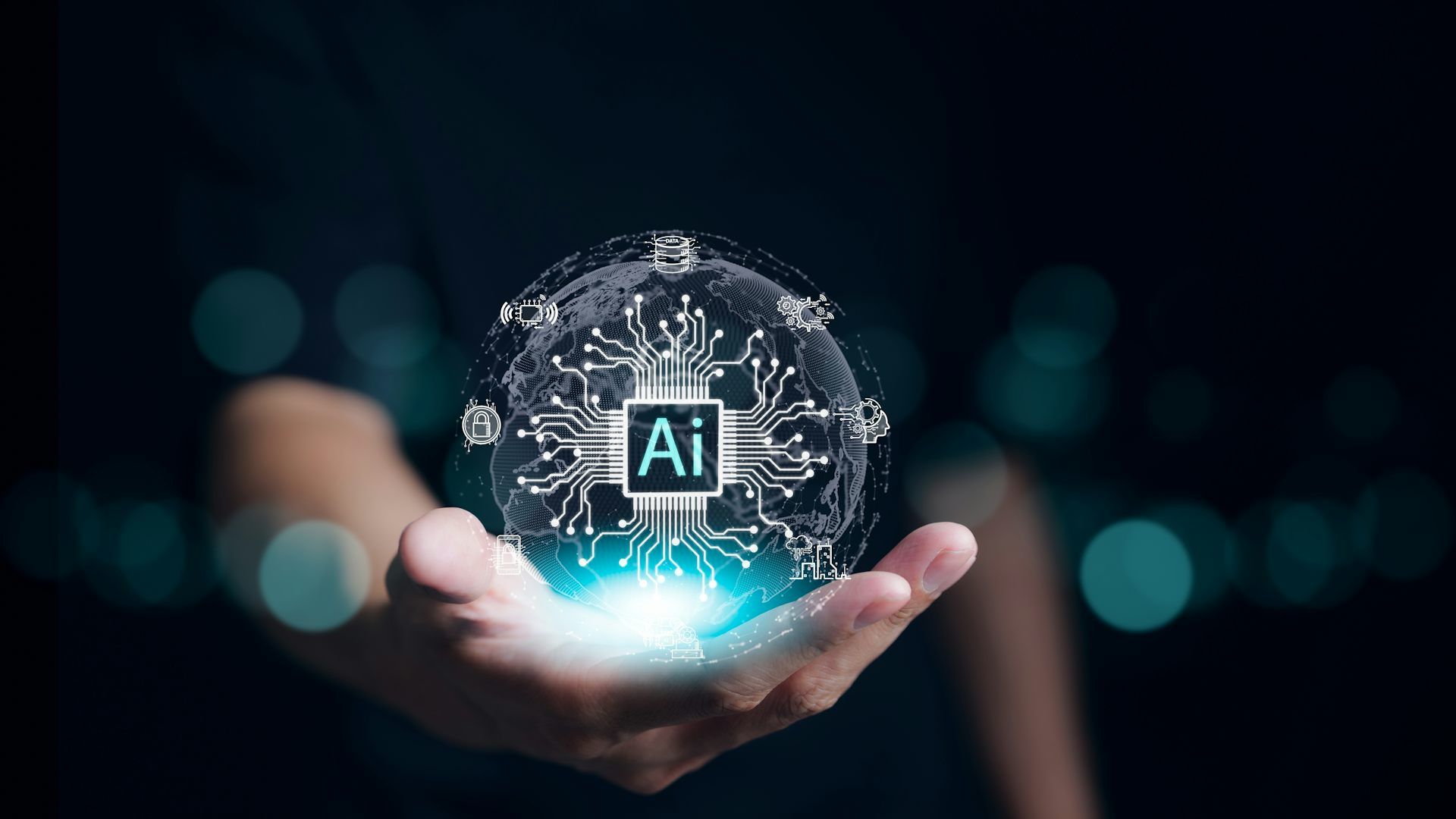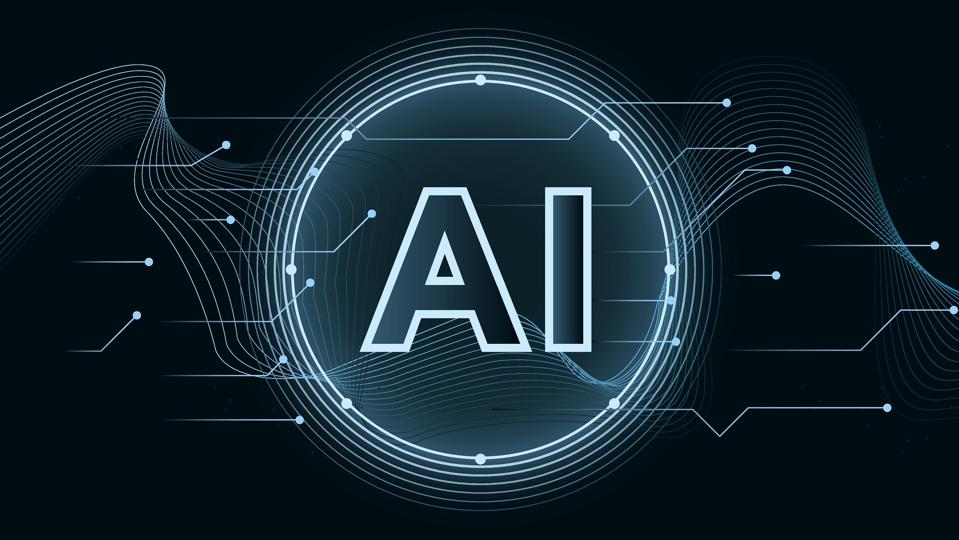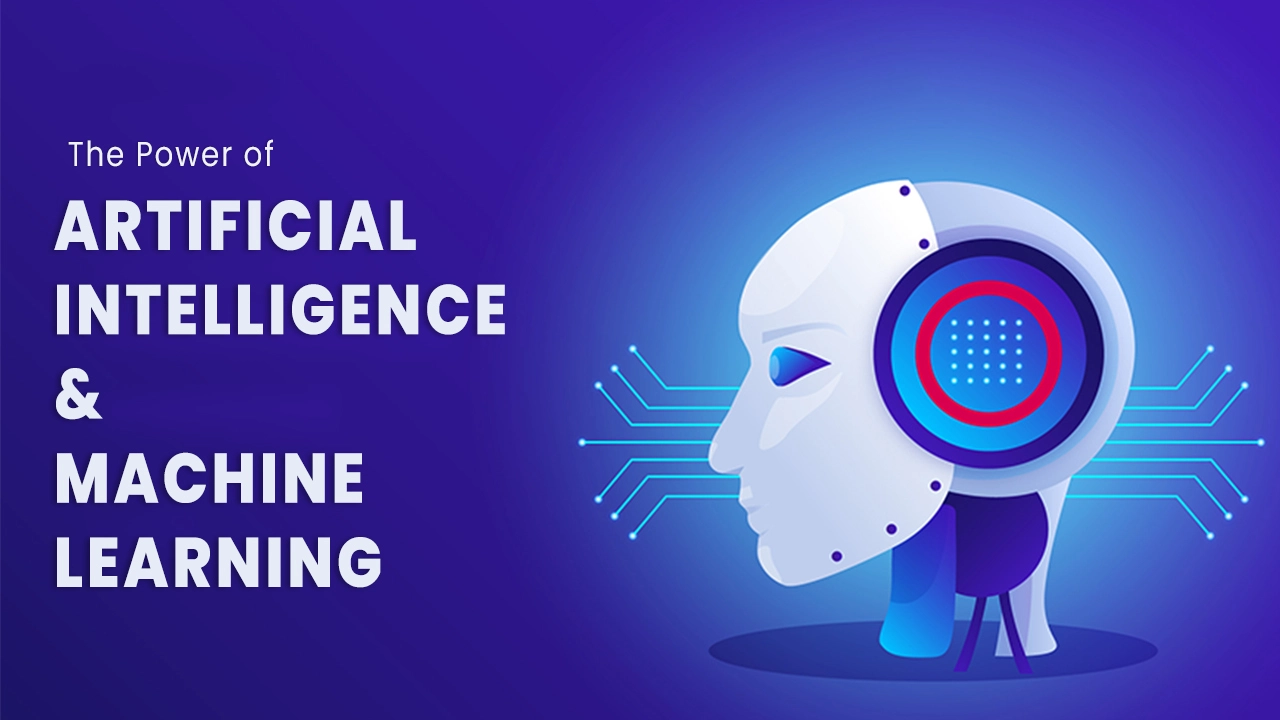
We might earn money when you click links to our partners. Learn More.

What is synthetic basic intelligence (AGI), and why does it matter? As one of the most talked-about topics in technology today, it has actually triggered a race amongst top companies like OpenAI and Google to turn this cutting-edge idea into truth. Understanding AGI is important due to the fact that it has the potential to revamp industries, impact our society in extensive methods, and alter the method we engage with technology. Here's what you need to learn about what it may be able to do, how it might change industries and fields, and the significant difficulties facing its development.

KEY TAKEAWAYS
• AGI differs from standard AI in key ways in that it would have the ability to think, learn on its own, and adjust to brand-new obstacles like people unlike standard AI, which is created for specialized jobs and operates within a limited scope. It requires people to update and refine capabilities. (Jump to Section).
• Once it ends up being a truth, AGI would be able to make exceptional advances in a number of fields, including healthcare, research study, and finance sectors. (Jump to Section).
• Creating AGI is tough due to the research challenges that consist of technical, ethical, and social issues. Addressing these difficulties is central to preserving the safe and positive advancement of this technology. (Jump to Section)
Featured Partners: Artificial Intelligence Software
Discover more
TABULATION

What is Artificial General Intelligence (AGI): A Clear Definition.
Understanding AGI vs Traditional AI.
Potential Applications of Artificial General Intelligence.
Challenges in Artificial General Intelligence Research.
3 Introductory AGI Courses to Consider.
Frequently Asked Questions (FAQs).
Bottom Line: Why Knowing What Is Artificial General Intelligence Matters.
What is Artificial General Intelligence (AGI): A Clear Definition
Artificial basic intelligence, or AGI, refers to a type of expert system (AI) that can interpret, learn, and perform any cognitive task that a human can do. Unlike today's AI, which is developed to manage particular tasks like suggesting items or processing data, AGI would be able to adjust to brand-new obstacles and use understanding throughout various fields. To put it simply, this advanced kind of AI would believe and reason like a human. While AGI holds terrific prospective, it deserves keeping in mind that it is still a principle today, with no completely established systems available yet.
Key Capabilities of Artificial General Intelligence
AGI would have a variety of capabilities that imitate human intellectual functions, so it can perform tasks beyond the narrow focus of the present AI tools in the market. Some essential abilities consist of the following:
Human-Like Reasoning: The technology would be able to comprehend and make decisions the method people do. It would think seriously, resolve issues, and develop options based on its own experiences and past interactions, similar to how we use previous knowledge to new scenarios.
Solving Unfamiliar Problems: One of AGI's strengths is its possible to tackle brand-new issues. Unlike conventional AI, which is trained to perform specific jobs, AGI would have the capability to deal with problems it hasn't been straight trained to resolve. It might find out how to approach a totally brand-new challenge, similar to humans do when confronted with something we've never ever encountered before.
Self-Learning and Adapting: AGI might tweak its abilities and gain from experience, without the need to be by hand upgraded each time. It would observe and examine data, learn from errors, and discover better ways to complete tasks with time. This suggests AGI might adjust to new situations and improve at tasks by itself.
Using Knowledge Across Different Areas: AGI would have the ability to take what it learns in one location and apply it to other jobs. For instance, garagesale.es if it discovered how to solve mathematics issues, it could utilize that knowledge to address obstacles in other fields, like science or organization. The capability to transfer abilities across different areas is something humans do naturally and would make the innovation versatile in diverse sectors.
Understanding and Responding to Emotions: Recognizing and reacting to human emotions would likewise be within AGI's capabilities. This would be very important in settings where understanding individuals's feelings matters, such as healthcare, customer service, or social circumstances. By reacting to emotions properly, AGI would be much better geared up to work with people in an efficient method.
Understanding AGI vs Traditional AI
The table listed below provides a snapshot of the major distinctions in between AI and traditional or narrow AI by underscoring their capabilities, versatility, and current status.
AGI would have the ability to think, discover autonomously, and adjust to new obstacles like humans. However, it is still theoretical and has not been realized yet. On the other hand, conventional AI is developed for particular tasks and runs within a fixed scope. It can not adapt to new tasks without human input.
For instance, an AGI might discover to identify medical conditions, then utilize that knowledge to develop customized treatment plans-and even adjust its method based upon the patient's progress. Additionally, it could apply this analytical ability to tasks in entirely different fields, such as creating organization techniques or advising on ecological preservation. In contrast, standard AI, like a diagnostic tool, can only examine medical data for specific conditions. It can not adjust to other locations or improve on its own.
Potential Applications of Artificial General Intelligence
While AGI isn't here yet, its potential applications cover many fields and hold fantastic pledge of extreme improvements in numerous sectors. Without being restricted to particular jobs like narrow AI, AGI would be extremely versatile and might apply its abilities to fix multi-disciplinary issues. It might overcome obstacles currently beyond the capabilities of existing AI applications.

Transforming Healthcare
AGI would alter the video game in healthcare by diagnosing complex and unusual diseases with greater precision, even in cases where signs are ambiguous or overlap with numerous conditions. It might develop extremely personalized treatment strategies by studying client history, genetic information, and real-time health data. In addition, AGI could accelerate drug discovery, determining possible treatments in weeks instead of years by processing enormous datasets and running predictive simulations.
Advancing Scientific Research
In clinical research, AGI would have the ability to imitate experiments, analyze elaborate datasets, and produce hypotheses. It could expedite advancements in quantum physics, genomics, and climate science. By integrating knowledge from numerous domains, the technology could uncover connections and services that might otherwise go unnoticed by traditional AI.
Improving Industry
Organizations in the industrial field could use AGI to increase efficiency in real-time by handling whole supply chains. It would forecast and resolve disruptions before they happen. In production, it could oversee autonomous factories, optimizing production procedures while preserving safety and quality standards. Its ability to adapt to changing situations would make it an important tool in industrial environments.
Enhancing Business Strategy
AGI could improve service decision-making by examining market trends, customer behavior, and functional data to find chances and threats. In contrast to narrow AI systems, AGI would innovate options to tough organization problems, such as handling financial unpredictability or forecasting long-lasting market shifts. Its ability to gain from diverse sources would empower companies to stay competitive.

Redefining Finance
In the monetary sector, AGI might increase forecasting accuracy by spotting patterns in vast amounts of monetary information, so investors and organizations can make educated choices. It would likewise have the ability to spot scams in real-time by recognizing subtle anomalies that traditional AI systems may miss out on. Additionally, AGI could construct more robust financial designs, considering complicated variables and situations to alleviate dangers.
Challenges in Artificial General Intelligence Research
Developing AGI is among the most enthusiastic goals in technology, however it includes many problems. These difficulties include technical, ethical, and social locations, making AGI development an elaborate and multi-faceted procedure. Overcoming the following challenges is tantamount to making sure security, supporting ethical standards, and carefully planning how AGI's introduction and use will impact people, industries, and society as a whole:
Making AGI Truly Flexible: AGI would need to handle a vast array of issues and adapt to new scenarios, similar to people. Building a system of flexibility is exceptionally hard because existing AI tools are not designed to think or learn at this level of elegance.
Massive Computing Needs: To replicate human intelligence, AGI would need massive amounts of calculating power to procedure info from varied sources rapidly. Finding out how to make such systems effective and effective enough for real-world usage is a considerable obstacle.
Understanding Human Intelligence: We don't fully comprehend how human thinking works, especially complicated aspects like intuition or consciousness. Without this understanding, it's challenging to develop devices that can imitate human-like thinking.
Making AGI Safe and Ethical: AGI might potentially be misused, like to produce prejudiced systems or damaging tools like autonomous weapons. Researchers should make sure that AG is developed properly and follows stringent ethical standards. This is a tricky job that demands global cooperation.
Keeping It Under Control: users.atw.hu There's a risk AGI could act in methods we do not expect, specifically considering that it would have the capability to learn and change gradually. Ensuring that these systems stay lined up with human values and are safe to utilize is one of the biggest difficulties in AGI research.
Impact on Jobs and Society: If AGI comes true, it might replace tasks or trigger economic inequality by benefitting some groups more than others. Preparing for these social effects is simply as essential as building the innovation itself.
High Costs and Resources: Researching AGI necessitates a lot of cash, time, and specialist understanding. Not all companies have these resources, slowing down progress and leaving smaller sized services out of the race.
3 Introductory AGI Courses to Consider
Familiarizing yourself with AGI can provide you an one-upmanship, whether you wish to advance your profession in AI or just desire to stay notified about emerging innovations. The following introductory courses can assist you get a much deeper understanding of what synthetic general intelligence is, so you can solidify your knowledge about this promising AI development.
Artificial General Intelligence (AGI): An Introductory Course on Udemy
This Udemy course provides a fundamental understanding of AGI, suitable for beginners without any prior experience. The course covers relevant subjects, consisting of the foundations of AI, the essentials of AGI, and the current trends in the field. It likewise checks out the benefits, risks, and challenges related to AGI, equipping you with insights into what the innovative innovation can achieve. The whole course consists of 15 lectures and can be completed in around 45 minutes. Upon conclusion, you will get a certificate to reinforce your qualifications in the job market. This introductory course expenses $24.99.
Intro to Artificial General Intelligence (AGI): Future of AI on Udemy
Udemy's introductory course offers a thorough summary of AGI for students without any technical background. It discusses the historic context and structure of AGI, the differences between narrow AI and AGI, and ethical considerations surrounding its development. In addition, it addresses future patterns in AI and AGI, shedding light on the challenges and chances that lie ahead. Spanning one hour and 46 minutes, the course includes 39 lectures, on-demand video, hb9lc.org and downloadable resources. It likewise has a practical test at the end to reinforce your understanding. You will be granted a certificate as soon as you complete the course. It is readily available as part of Udemy's premium strategies, classicrock.awardspace.biz beginning at $20 per month, or as a different purchase of $49.99.
Artificial General Intelligence (AGI) on Udemy
This Udemy course brings a clear and succinct intro to the subject, with on-demand videos and 22 lectures. It elaborates on significant AGI principles and the role of robotics in AGI advancement. It also examines the ethical, software application, and hardware difficulties in creating AGI. The course offers tests to evaluate your understanding and a certificate of conclusion. Priced at $44.99, it is produced students at any level, making it accessible and valuable for anybody who wishes to find out more about AGI.
Frequently Asked Questions (FAQs)
Achieving AGI could reinvent markets, enhance decision-making, and lead to substantial advancements in innovation. However, it likewise raises concerns about ethics, job displacement, and the requirement for appropriate regulation to make sure it is developed securely and responsibly.
Experts disagree on how far we are from attaining AGI. Sam Altlman of OpenAI believes in 2025, AI representatives may sign up with the labor force, ultimately leading the way to AGI development. On the other hand, a survey of AI researchers puts the typical price quote around 2047. Despite quick AI developments, current systems are still restricted to narrow tasks and lack the broad, versatile reasoning of humans-so AGI is most likely still years away.
The idea of AGI totally changing people is still disputed. Although it's most likely that AGI will help us by taking over repeated tasks, there is a possibility that it might displace specific tasks. That stated, rather than entirely replacing people, AGI is expected to work along with us, dealing with technical duties while we focus on jobs that need imagination and empathy. At the end of the day, the impacts of AGI will depend on how society chooses to handle and incorporate it.
Bottom Line: Why Knowing What Is Artificial General Intelligence Matters
Understanding artificial general intelligence is vital since this innovation might alter industries, resolve challenging issues, and transform how we use AI. But as we start to establish AGI, we must thoroughly deal with several difficulties, including technical issues, ethical issues, forum.altaycoins.com and its total influence on society. By discovering AGI's prospective and risks, galgbtqhistoryproject.org we can pursue making sure it is developed properly and utilized in manner ins which would benefit everybody.




